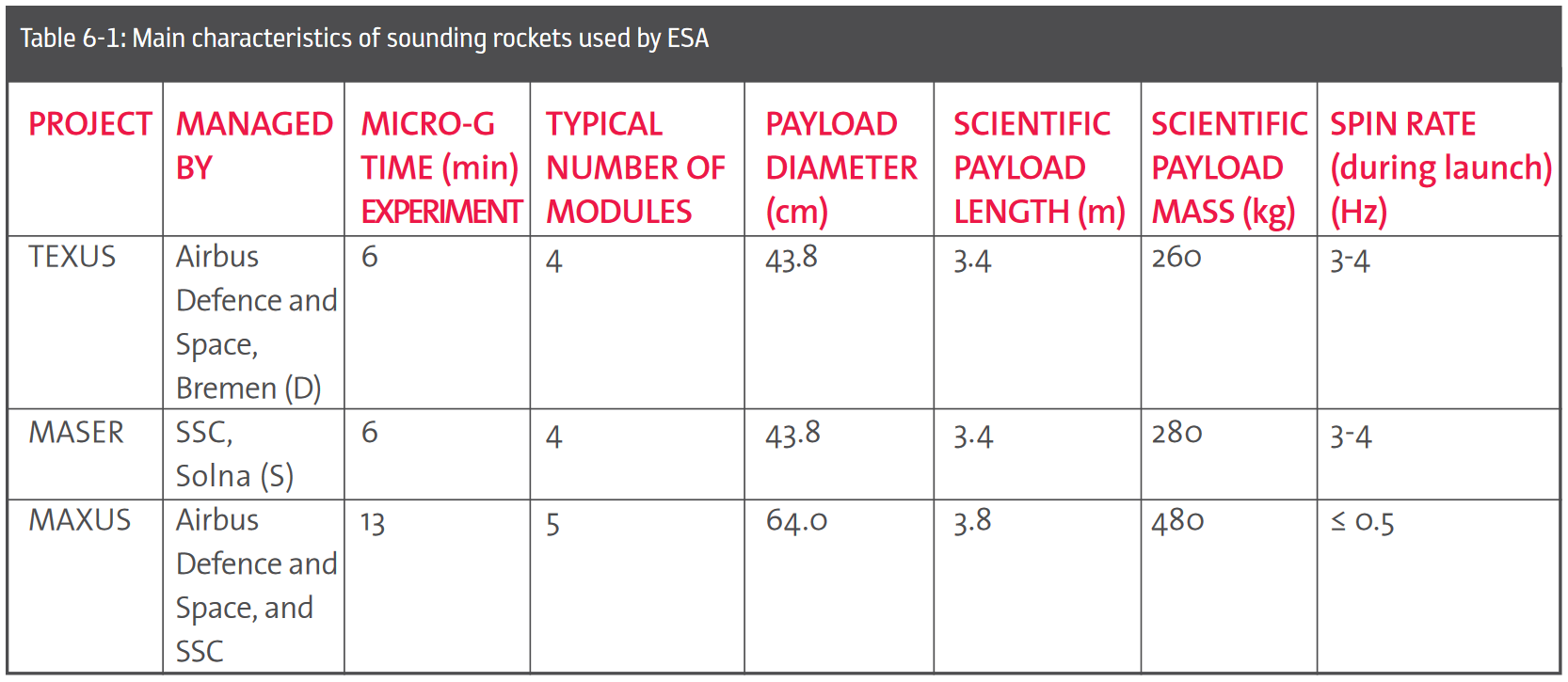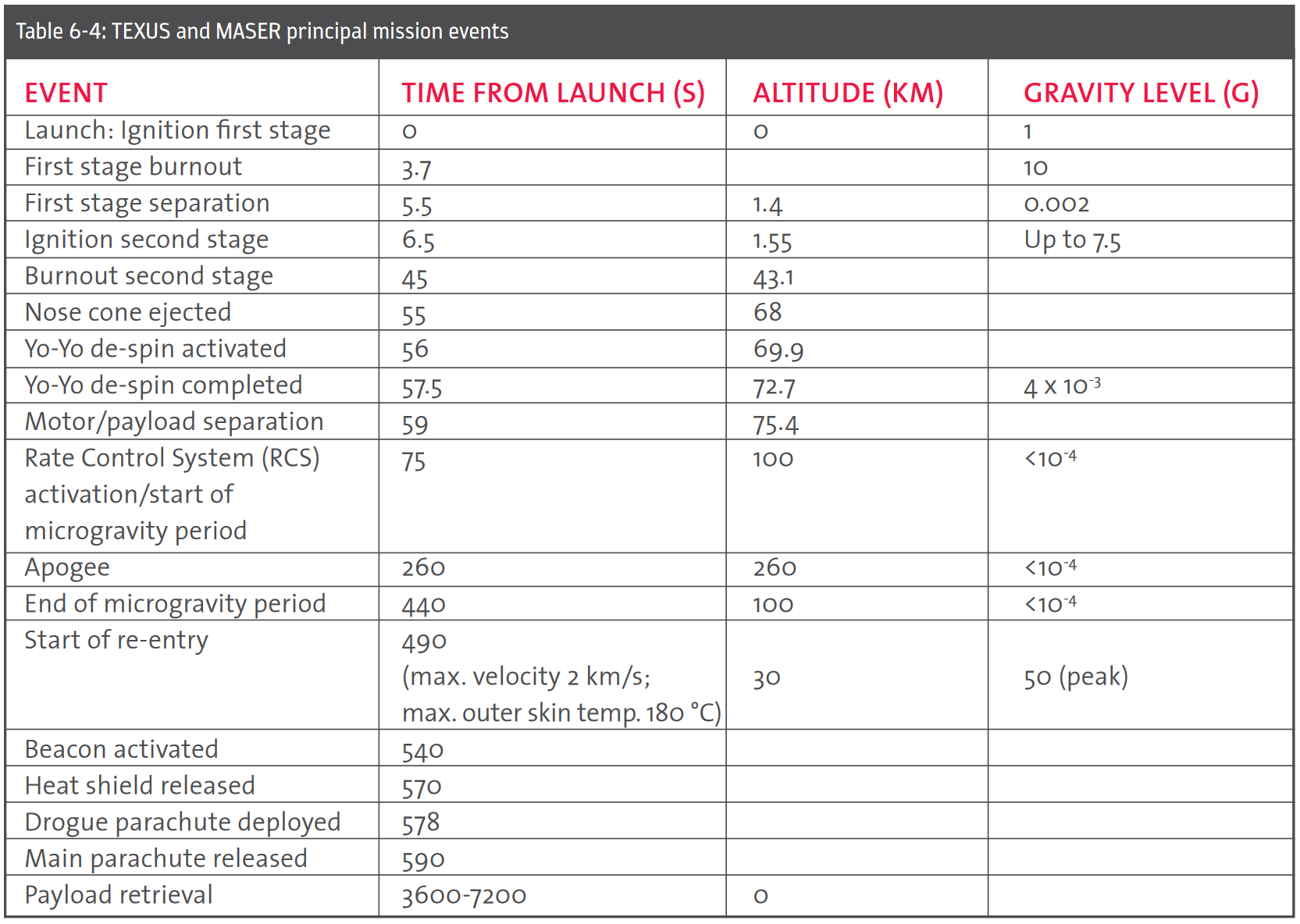Nine NASA payloads will be launched on the upcoming New Shepard mission (NS-10) into a suborbital trajectory. How does launching them on New Shepard compare to using traditional sounding rockets? Why would one be chosen for any experiment rather than the other?
1 Answer
The flight profile of a sounding rocket and the New Shepard are very different. For one, sounding rockets often fly higher than NS with some reaching altitudes of up to 1500 km. Additionally, sounding rockets undergo much more extreme accelerations. If you've ever seen a launch it's pretty clear to see that the sounding rocket is ridiculously fast. If you look at this chart that the ESA provides for sounding rocket experiments, you'll also notice some differences:
First, all of these rockets have long microgravity times compared to the NS, where the entire flight (launch to landing) only takes 10 minutes. Sounding rockets also often are spin stabilized which you can see in the last column where spin rates are shown.
Sounding rockets also go under extreme acceleration. In the same document, this mission chart shows what accelerations can be expected in a sounding rocket's flight:
So in total here's a list of possible reasons why NASA would choose the NS over a Sounding rocket:
- The experiment dosen't withstand high spin rates well
- The experiment is too fragile to withstand a 10g launch let alone a 50g reentry
- The experiment needs to be retrieved quickly after landing. With a sounding rocket, the experiment first needs to be found as landing location is highly weather dependent
- It may be easier to design an experiment knowing it'll be in a pressurized, climate controlled, cabin rather than exposed to hard vacuum and space
- The experiment could require human supervision/intervention or may contain a human as part of the experiment and you can't put a human in a sounding rocket (not that anyone's ridden the NS yet either)
-
1$\begingroup$ Another possible reason • Someone at Blue Origin had a mandate to get some revenue on the books any way possible, and knew a guy who knew a guy at NASA $\endgroup$ Commented Jan 24, 2019 at 18:02

